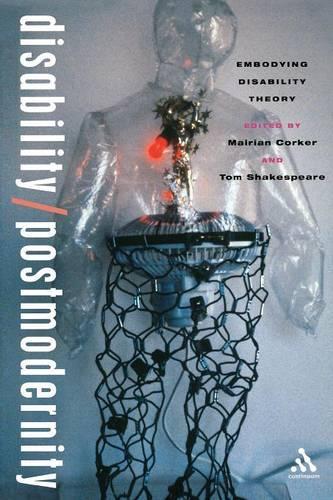
Disability/Postmodernity: Embodying Disability Theory
(Paperback)
Publishing Details
Disability/Postmodernity: Embodying Disability Theory
By (Author) Mairian Corker
Edited by Tom Shakespeare
Bloomsbury Publishing PLC
Continuum International Publishing Group Ltd.
1st May 2002
United Kingdom
Classifications
Tertiary Education
Non Fiction
Cultural studies
305.90816
Physical Properties
Paperback
264
Width 154mm, Height 232mm, Spine 16mm
376g
Description
With contributions from leading scholars in the USA, Canada, the UK, Switzerland, Japan, India, Australia and Jordan, Disability and Postmodernity is the first book to study disability within the context of the "postmodern" world of the twenty-first century. Organized into three sections, the volume opens with an exploration of theoretical perspectives, looking especially at phenomenology, at the body, and at concepts of difference and identity. The second section deals with culture, discussing aesthetics, narrative, film, architecture and design, while the final section explores social practice, including chapters on disabled childrens' perspectives, sexual identity and "madness and mental distress".The collection creates a bridge between social science perspectives on disability (predominant in disability studies in the UK for example) and humanities perspectives (which dominate the US approach). The authors aim to demystify the concept of postmodernity and to suggest ways in which it fosters a holistic approach to the study of disability that better represents and reflects the complexity of disabled people's experience. This is a unique and important contribution to both disability studies and social and cultural theory.
Reviews
Disability/postmodernity does well to signal the emergence of a new postmodernist sensibility that has largely failed to emerge from the 'social model' approach to disability research. I found the book both engaging and enjoyable and thoroughly recommend it. -- Cassandra Loeser, Research Centre for Gender Studies, University of South Australia, Magill SA Australia
Author Bio
University of Lancashire Tom Shakespeare is Senior Lecturer at the Norwich Medical School, University of East Anglia, UK.
